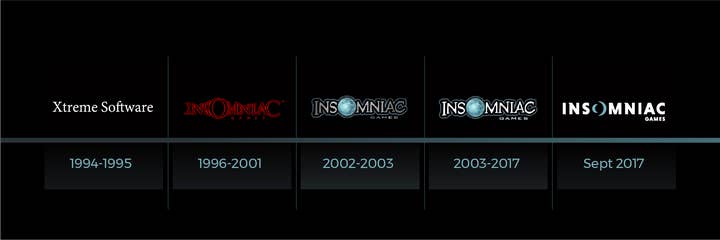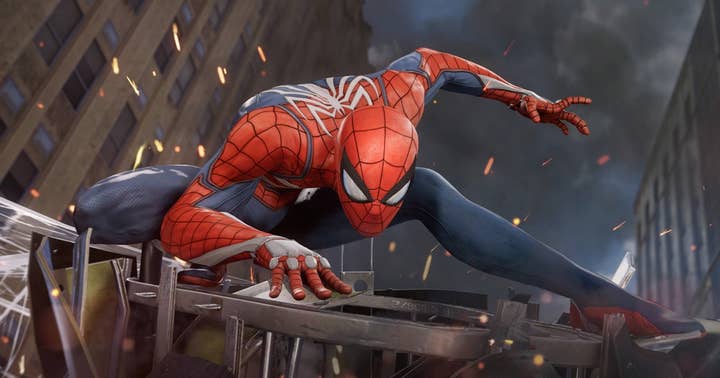Why Insomniac blew up the moon
Ryan Schneider explains how the Ratchet & Clank studio is trying to re-shape an already established and effective brand
A decade ago, the Insomniac Games brand meant AAA-scope Sony-exclusive series like Ratchet & Clank and Resistance. Since then the studio has expanded its portfolio tremendously. It's still working on a AAA Sony exclusive in the form of the much-anticipated Spider-Man, but it has also produced smaller scale games like Song of the Deep, exclusives for other platforms like Oculus and Xbox One, and even an assortment of titles for mobile devices and Facebook.
Despite that diversification, for some people the Insomniac brand still boils down to its old mainstays. Speaking with GamesIndustry.biz at the Montreal International Games Summit last month, Insomniac chief brand officer Ryan Schneider said that was a contributing factor in the studio's recent decision to rebrand.
"When you looked at the logo we had for the last 15 years, it means something to people," Schneider said. "You see it and you might think Ratchet & Clank, because we introduced that logo part and parcel with Ratchet in 2002 and updated it for Going Commando in 2003. You might think Spyro the Dragon. That logo has a certain fun, cartoony look to it, but our games have more range than that. What we needed to do was make sure our visual identity was aligning with our vision for the future.

"And that is a big reason why we went through our rebrand, to make sure we weren't painting ourselves into a corner with the games we'd made in the past while we could look ahead to the future and focus on an always-exploring mentality that encapsulates who we are, who we've been for a long time, and who we want to remain and where we're headed in the future."
Schneider is careful to make clear the studio doesn't want to break away from the old perceptions of its brand; it merely wants to expand them to reflect its current and future direction. And while the entire point of the brand is arguably to provide other people with a known quantity--something that gives them an idea of what to expect from an otherwise unknown thing--there also needs to be change to avoid stagnation.
"Our mindset is about exploration and experimentation," Schneider said. "That implies constant evolution. There are certain things that will always remain the same. We'll always work hard to be known as a top workplace in the industry. Our workplace culture is extremely important to us. I've been with Insomniac for 14 years, and I believe the average tenure of an Insomniac employee is close to five years still, despite our growth. And that happens for a reason."
"We all understand the crucial importance of getting Spider-Man right as a character. That is the primary goal. It's not about empire-building for the Insomniac brand."
However, it can't always be about Insomniac. There are times where the studio's brand needs to take a back seat of sorts. As meaningful as the Insomniac name might be, there are larger brands at play in the company's upcoming Spider-Man game, and the end product will likely need to serve those brands before Insomniac's. Fortunately, Schneider says those brands' needs align well enough with Insomniac's interests.
"We have a really close relationship with Marvel and Sony, and we all understand each other's roles," Schneider said. "And most important, we all understand the crucial importance of getting Spider-Man right as a character. That is the primary goal. It's not about empire-building for the Insomniac brand. If we do a great job making a memorable game, a Game of the Year-worthy candidate, then the Insomniac brand and building it will take care of itself."
Beyond the focus on exploration and experimentation, Insomniac's rebranding is also intended to reflect the studio's renewed emphasis on community building.
"Our goal is to create positive and lasting impressions for our players. That can mean through our games, or our accessibility as well. That's a big reason we built a broadcast studio for livestreaming inside our offices as well, because it gives us another avenue to get closer with our fans. And that's something we want to build off of in the future."

A brand can help get people in the door, but Schneider cautioned that keeping them there requires a lot more than just listening to the community; It also requires smart decision making.
"One of the hardest lessons we learned [at Insomniac] was the shift between Resistance: Fall of Man and Resistance 2," Schneider said. "We were relatively inexperienced when it came to interacting with our community at that point in time. Social media and community were still in their relatively early days, and we over-indexed on how much we listened to our fanbase versus trusting ourselves."
"As a studio and a community team, we've done a better job of listening with a little less direct emotional engagement, and analyze with a little bit more objectivity."
In other words, they listened to the vocal minority. Schneider said the result was a sequel that felt too different from its predecessor, and sales that reflected that.
"That's something we learned the hard way over the years," Schneider said. "Just because you see it online and you see it in the forums, that doesn't necessarily represent the majority viewpoint. And even if it does, you still have to think about your predisposition. You have to challenge and reaffirm your own beliefs about what you're trying to make before you can deliberate and make the final decision.
"What happens is we deal with this thing called the doubt monster, or what other people call the lizard brain, and we start to enter this phase of defensiveness or self-doubt. And we don't believe in ourselves and the choices we're making, and that causes us to cave in and compromise. When we do that, we stray from our vision and values."
So having learned that, how does Insomniac sift through feedback today and determine what's a vocal minority, and what's truly representative of the larger playerbase?
"As a studio and a community team, we've done a better job of listening with a little less direct emotional engagement, and analyze with a little bit more objectivity," Schneider said. "At the same time, we've been doing this almost 25 years, so when you weigh the ability to listen with the confidence to trust your instincts, not being afraid to change course when you need to do but balancing that with confidence and experience, you're more apt to make a better decision, or even take a bigger risk.
"That's exactly what we did with the rebrand. We blew up the moon, our beloved icon that millions of people around the world had grown to love, but we knew it didn't tell the story we wanted to tell, and we had the courage to take an entirely different approach and direction with the rebrand. And we feel great about it."
Disclosure: MIGS has a media partnership with GamesIndustry.biz, and paid for our travel and accommodation during the event.
